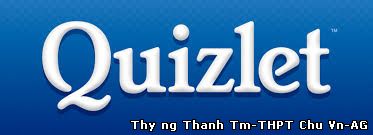| ÔN THI TN THPT 2017 |
|
|
| TRANG WEB LIÊN KẾT |
|
|
| ÔN TẬP HỌC KỲ 1 |
|
|
| ĐĂNG NHẬP |
|
|
| RÈN LUYỆN KỸ NĂNG |
| MỖI NGÀY NÊN HỌC |
| WEBSITE NỔI BẬT |
| CẢNH ĐẸP VIỆT NAM |
|
|
| THỐNG KÊ TRUY CẬP |
|
Thành viên |
Main » 2014 » Tháng 1 » 13 » Cadres assessment
|
6:19 AM Cadres assessment | |
| CADRES ASSESSMENT- AN IMPORTANT STEP IN THE WORK OF CADRES OF THE PARTY During the revolutionary period and the resistance war against foreign invaders, thanks to good work of cadres, our Party boasts a contingent of cadres with revolutionary ethics, firm political acumen and high organizational capacity. They disseminated the Party’s policies among the people, organize and lead the people in overcoming all difficulties, challenges and hardship to win the August revolution, the two resistance wars against the French colonialists and the US imperialists, wrested back independence and freedom, reunified the country and brought the country to socialism. During the past 18 years of renovation, especially in the process of industrialization and modernization of the country for a strong country, prosperous people and an equitable, democratic and civilized society, our Party has developed a socialist-oriented market economy. In the process of economic globalization, we must take initiative in integrating into international and regional economies by flexibly combining our internal and external strength and building an independent and sovereign economy which achieves quick and sustainable development while maintaining stability within the country and adapting to complicated situations in the world. On the other hand, many factors have had impacts on Party officials and members, including the negative impacts of the market economy and capitalist globalization as well as the strategy of insidious subversion by hostile forces. In that situation, with a view to enhance the leadership of the Party on par with its political tasks, to grasp opportunities, overcome challenges and threats, successfully implement strategic objectives and policies of the Party recommended by the 9th Party Congress, the work of cadres becomes extremely important. The objective of the work of cadres is to : "build a contingent of cadres, especially managers and leaders at all levels. These cadres must have firm political viewpoints and demonstrate positive examples in ethics and lifestyle. They must have high knowledge, be capable in organizing practical activities and be closely associated with the people." The work of cadres consists of several stages: assessment, planning, rotation, training, placement and use. Though each step has a certain position, they are closely associated. The first premise of important significance and the basis of other steps is assessment. Right assessment is the basis of right selection, planning and placement. Incorrect assessment leads to incorrect selection, planning and placement and therefore creates unprecedented consequences. Over the past years, the work of cadres has seen changes in awareness and methods. Progress has been made in cadres assessment. However, cadres assessment is still a weak link in the chain. Constraints in this field have been slowly overcome and the quality of cadres assessment is not satisfactory. Recently, large-scale criminal cases relating to many places, and offenders, even involved Party members and cadres were put on trial. Among them were high-ranking Party officials. They committed offences due to corruption, violations of laws and policies, management rules and irresponsibility resulting in heavy consequences. Some had relations with the "underworld". Lessons can be drawn from the work of cadres, of them some are related to cadres assessment. Due to imprecise assessment of cadres, we place them in important positions as managers or leaders for quite some time. Some even got elected to the Party Executive Committees for several tenures. When they have power, they have more conditions to carry out their personal plots, causing great harm to the Party and community and resentment and disbelief among the people. This situation is reflected in to observations in the Mid-term review of the implementation of the resolutions of the 9th Party Congress. The Mid-term review made by the Party Central Committee, the 9th tenure stated: "cadres assessment is weak because fair, impartial and reliable assessment methods have not been developed." As the result, the 9th Party Central Committee, the 9th tenure attached great importance to renovating the work of cadres. It said: "efforts must be made to renovate methods of assessing cadres through building and implementing the system of cadre assessment." It is true that cadres assessment is difficult, sometimes it is extremely difficult. As cadres are also human beings and as K. Marx wrote: "Human nature, in reality, is a combination of social relations." Cadres are regulated by a series of social relations. They must implement the Party’s policies and the State’s legislation. They have relations with organizations, offices, comrades, colleagues, friends, families and neighbors. Cadres assessment is a process of awareness to find out and make correct observations on the nature of cadres according to cadres the criteria of the Party in certain historical processes. It is the first step of the work on cadres and also a regular job to be done in the process of planning, rotation, training and use of cadres. It is the process of assessment and reassessment of cadres. To make assessment on cadres, the units which carry out assessment include Party Executive Committees, offices, organization and individuals who must be fair, impartial and true. Cadres assessment is a reflection on a cadres by another cadres. If the later is bias or opportunist or follows individualism, factionism or localism, he will make imprecise, distorted assessment. As an saying goes "Beauty is in the eye of the beholder". This means that the Party Executive Committees, leaders and those who are involved in the work on cadres must be transparent in the interests of the Party and the revolution. They must avoid subjective mistakes. According to President Ho Chi Minh, understanding others is of course difficult but understanding oneself is much harder. If one does not understand oneself, one can hardly understand others. So, to understand the good and the bad things in others, one must understand the good and bad things in oneself. President Ho Chi Minh mentioned 4 mistakes that a manager often makes. They are: self-conceit, preference of flattery, subjectivism, and measurement of others with one framework. According to him, committing one of these mistakes is like wearing tinted spectacles. With this pair of spectacles, one can hardly see the true face of what one sees. To understand cadres clearly, and to behave correctly with a different type of people, one must rectify oneself first. If one makes less mistakes, one can make better assessments. An old story can be recalled here as a reference for all of us. To Hien Thanh is a mandarin in the early period of the Ly dynasty. He was well-known as an ethical and benevolent man. When he felt ill, the King’s mother visited him and asked him who could replace him when he passed away. There were two men, Vu Tan Duong and Tran Trung Ta. Everybody knew that Vu Tan Duong was his associate who was talented and assisted him in house keeping. He replied without thinking " Her Majesty, I choose Tran Trung Ta". Somebody asked him why he did not nominate Vu Tan Duong. He answered that if he looked for someone who was good at working as a servant, he would choose Vu Tan Duong. But if he looked for a talented person who could assist the King in ruling the country, he would choose Tran Trung Ta. It is obvious that To Hien Thanh was impartial and fair in the assessment and selection of mandarin at that time. Scientific methods are very necessary and important to correctly assess cadres. Developing objective and comprehensive viewpoints as well as practical and concrete historical perspectives of dialectical materialism must be taken into consideration. A cadres must be assessed comprehensively in ethics, virtue, political acumen, life style, work style, social relations, strong and weak points and work relations with other people, neighbors and friends. Only through this information can the nature of a cadres be fully understood. President Ho Chi Minh wrote: "In assessing cadres, one cannot only assess his appearance but also his characteristics, not only through one activity but all of his activities."6 According to President Ho Chi Minh, everything in the world, including human ideology, can change. Therefore the assessment of cadres could not be rigid and bias. One cadres can make a mistake. It does not mean that he will always make mistake while one cadre has not made any mistakes, its does not mean that he will not make any mistakes later on. The past, present and future of every people are not the same. HO Chi Minh said "Someone was very courageous during the resistance war, braving the enemy’s bombs and shells. When he returned to urban areas, he was deceived by beautiful girls, lost his stance point and committed crimes."7 Consequently, in order to correctly assess a cadre and his thinking through different stages, especially through historical upheavals when the revolution is in a disadvanged situation or suffers set backs he , must be monitored. This will help the Party see more clearly who adheres to the revolutionary viewpoint and who waves. Strong and weak points of cadres must be assessed and analyzed objectively, especially the weak points. Which weak points belong to viewpoints and stance and which belong to ethics and life style must be understood. This will help in assessing whether his strong points or weak points are fundamental. To fully understand and correctly assess cadres, an important thing to do at present is to renovate cadres management and continue to overcome constraints in cadres management such as loose management and bureaucracy. Due to these constraints some Party Executive Committees and offices have not understood their cadres and failed to follow their cadres’ thinking and activities and placed cadres with poor ethics and virtue to important positions of management or power. These cadres were degraded and corrupted, took bribes and protected criminals. For a long period of time, they stayed out of control. Only when discovered were they punished, put to trial, expelled from the Party and sentenced to imprisonment. All these events affect the prestige of our Party and administration and we lose cadres. They give rise to the need to develop a regime to manage cadres with scientific methods and concrete regulations, especially the setting up of cadres’ files. These files do not only include cadres’ curriculum vitaes to help office managers understand their history. They also consist of reports of cadres, self-assessment on cadres in response to the campaign on party building and rectification, year-end review of cadres’ performance, reports of cadres after their study abroad or in Vietnam, self-assessment of cadres when they are assigned to other positions certified by superiors or party organization and health records of cadres provided by the health services of their offices. If cadres files are made in a complete and continuous manner, office managers can understand and control their cadres. This is a necessary condition but is not enough. To correctly assess cadres, the Party must develop cadres criteria. This criteria depends on many factors such as revolutionary requirements in each stage, the Party’s political tasks and the objective of building a contingent of cadres for the Party. Many resolutions of the Party have identified the most common criteria of revolutionary cadres. They are virtue, capacity, ethics and talent. According to Uncle Ho: "ethics is the root of the revolutionary". A cadre with ethics but without talent is like a Buddha in a pagoda. With talent but without ethics, a cadres can cause harm to the Party and the people. These common criteria must be developed to suit each type of cadres (political leader, state administrative leader, economic manager, scientific cadres, educational cadres, army officer, public security officer and diplomatic cadres) in each aspect of work. Cadres assessment must be based on common criteria, the type of tasks assigned to a cadres, the cadres’ performance and the results of the cadres’ unit. It is impossible to have a cadres with good performance but his office with poor results. A Party charter can not be recognized as a "throng and transparent charter" when its unit has poor performance or even negative phenomena. Over the past years, some Party Executive Committees and organizations have assessed Party officials according to common criteria. The main measurements are the performance and prestige of cadres, Party officials and the people. For example, some Party Executive Committee identified cadres assessment criteria in their localities as follows: 1. Economic growth (increase in both production value and revenue); 2. Internal unity (cadres must set a bright example, and be devoted and self-disciplined); 3- Stability (cadre must be without complaints and grievances) On this issue, when talking about good and bad cadres, president Ho Chi Minh drew a great lesson. According to him, a cadres who was boastful about his job, followed others, worked as ordered in the presence of his superior, but failed to do so when his superior was absent, often criticized others and promoted himself were not good cadres even if their performance was good. On the other hand there is a good cadres who is one knows only their own work, is not boastful, speaks straight-forward, does not hide his mistakes, or avoid hard work and is resolute and focused in implementing the Party’s order in any circumstances. He is a good cadres even though his performance may be poor"8. To ensure partiality and fairness in cadre assessment, a democratic and transparent regulation on suitable assessment processes must be developed. This process includes: - First, consideration of a cadres’ file. - Second, collection of opinions of staff of the unit where the cadre is working and of the Party organization where the cadres is living. - Third, on the basis of the cadres’ file and opinions collected (either by a majority or minority of people), through the leadership and representative of the Party organization of the unit where the cadres works discusses and exchanges opinions democratically. If the cadres is assessed favorably by the majority of cadres and staff in his unit and the Party organization where he lives and his record is good, the leadership of the unit will respect the opinions of the majority and accept the assessment. Except for special cases where consideration is needed and the assessment is unacceptable, the leadership of the unit will take decision contrary to the opinion of the majority. The assessment will be made known to the cadres, staff and the superior level for consideration. It is note worthy that the implementation of the democratic assessment of cadres can only be impartial and objective when the staff and leadership of the unit where the cadres is working are not bias or make any of the 4 mistakes as mentioned by President Ho Chi Minh. If there is any manifestation of these mistakes show, measures must be taken to correct them before making assessment. Otherwise, the assessment of cadres will not achieve positive results (or select good people with ethics and talent) and will also cause serious damage to internal stability. In the work of cadres assessment, superior leadership must pay attention to inspecting, rectifying and correcting any mistakes to ensure precise assessment and the selection of the right people. This is all the more important when assessment is needed to promote cadres to higher and more important positions. Cadres assessment should be done not only once but regularly and annually. If kept in the records and these assessment can help cadres management units understand cadres. This also helps cadres to understand themselves better so that they can promote their strong points and overcome their weak points (if any). This also improve the work of cadres in the Party. (1) Ho Chi Minh Complete Work, the National Political Publishing House, Hanoi, 1995, Vol. 5, p. 273 (2) Op.cit. The 9th National Party Congress, the National Political Publishing House, Ha Noi, 2001, p. 141 (3) Document of the 9th Party Central Committee, the National Political Publishing House, Hanoi, 2004, p 65-66 and 110. (4.) Op.cit. (5) K.Marx, F. Engel: Complete work, the National Political Publishing House, Hanoi, 1995, p.11 (6) Ho Chi Minh: Op.cit, Vol 5, p 278 (7) Ho Chi Minh: Op.cit, Vol. 7, p 346 (8) Ho Chi Minh. Op.cit, Vol. 5, p. 278 Sources:
| |
|
| |
| Total comments: 0 | |














